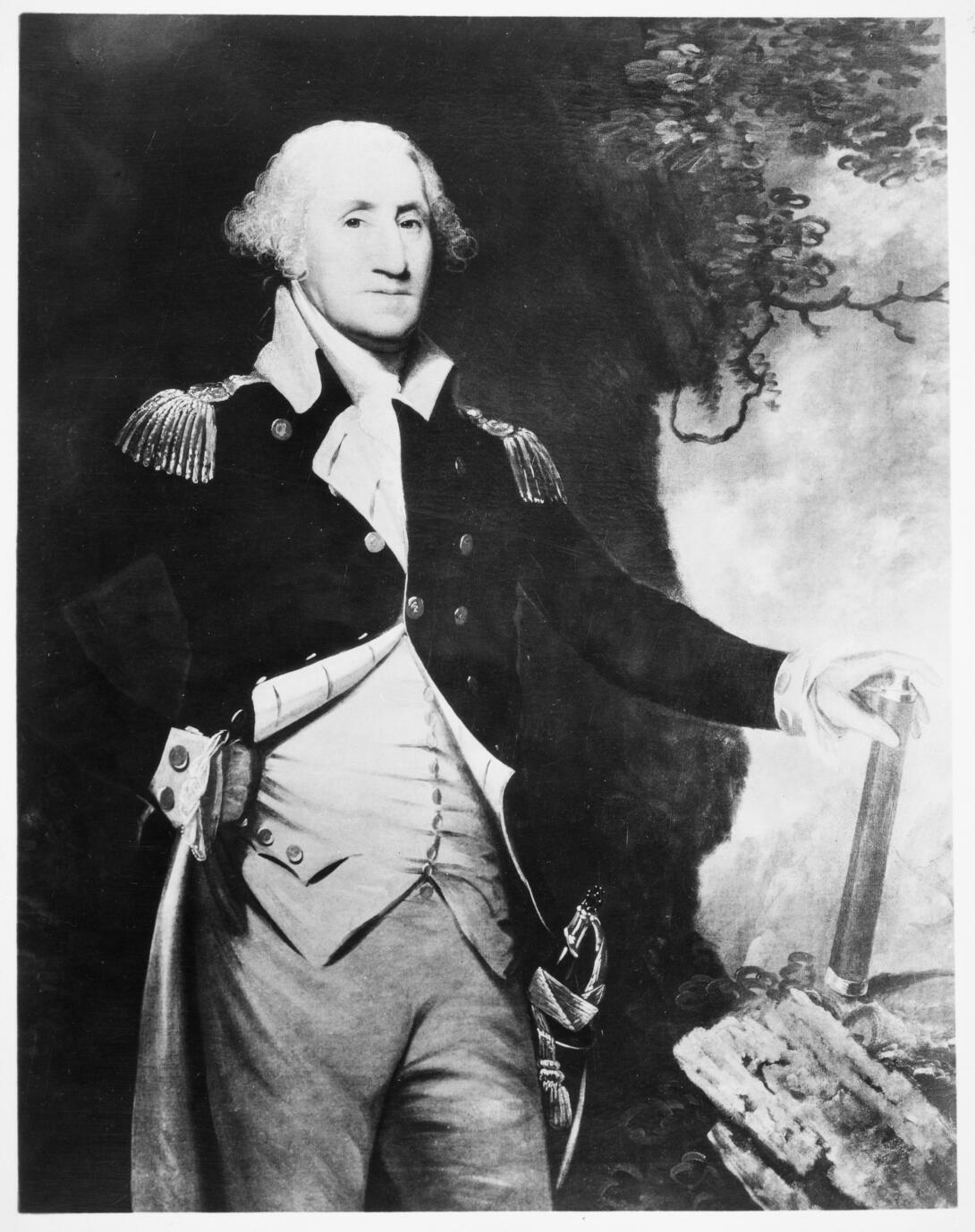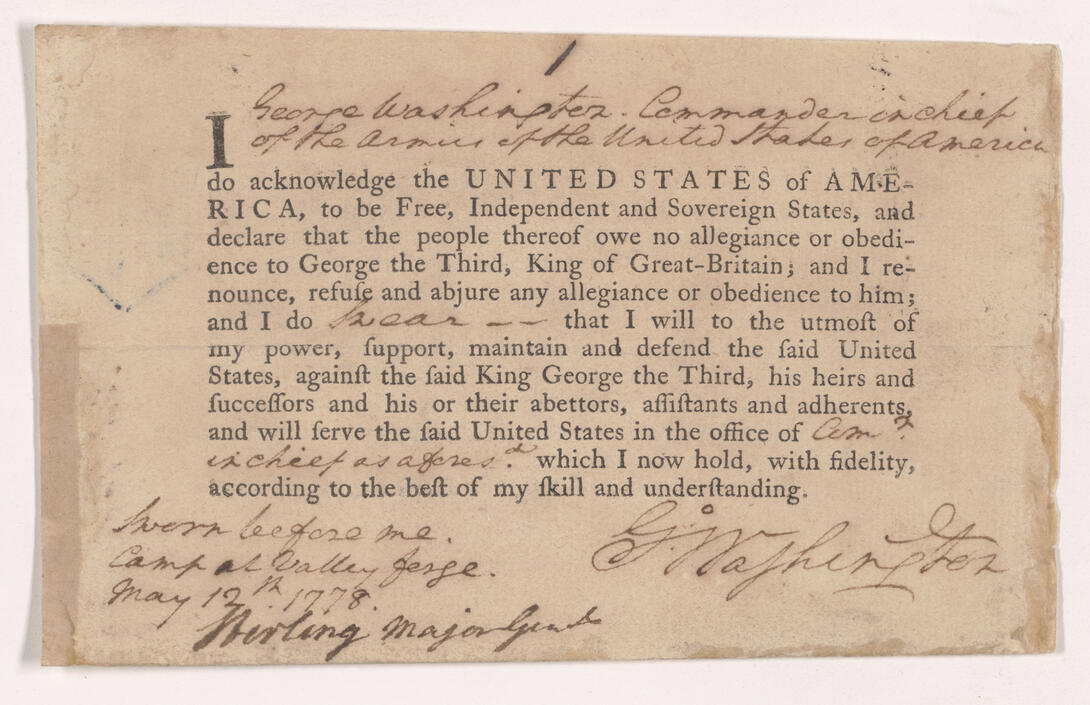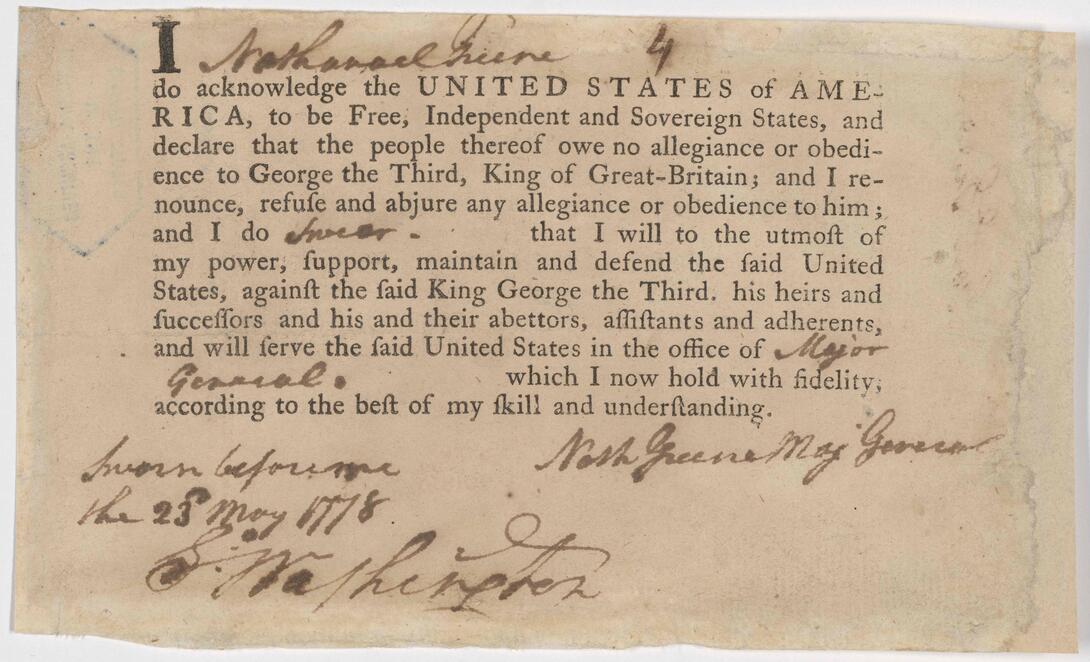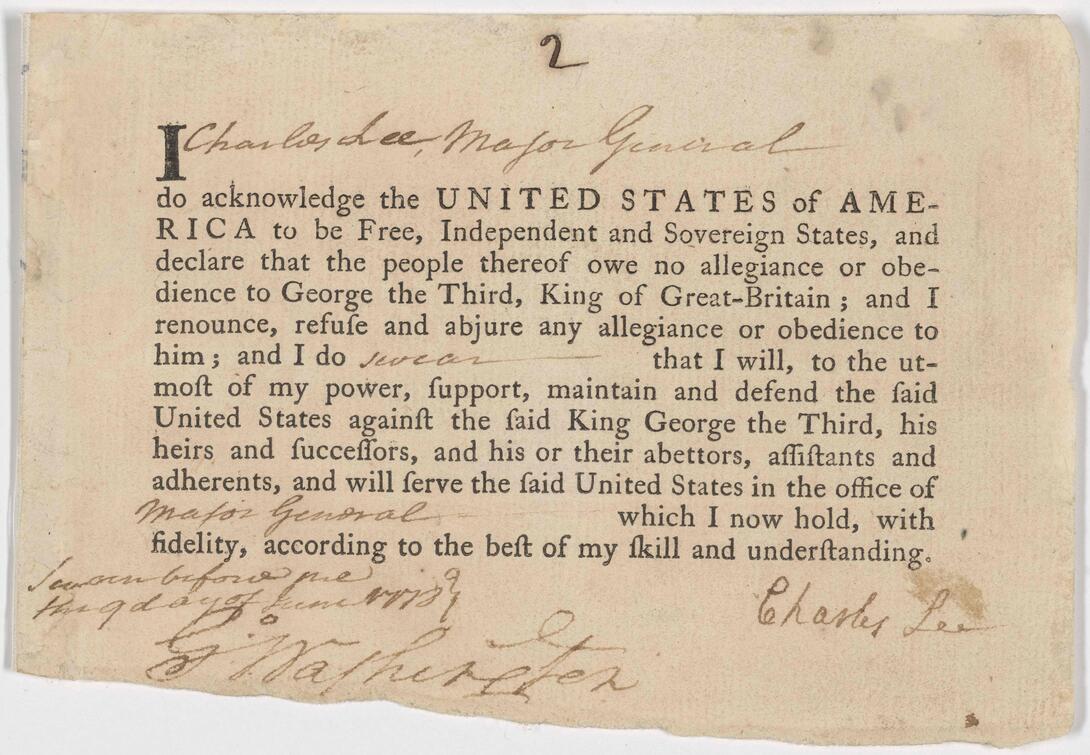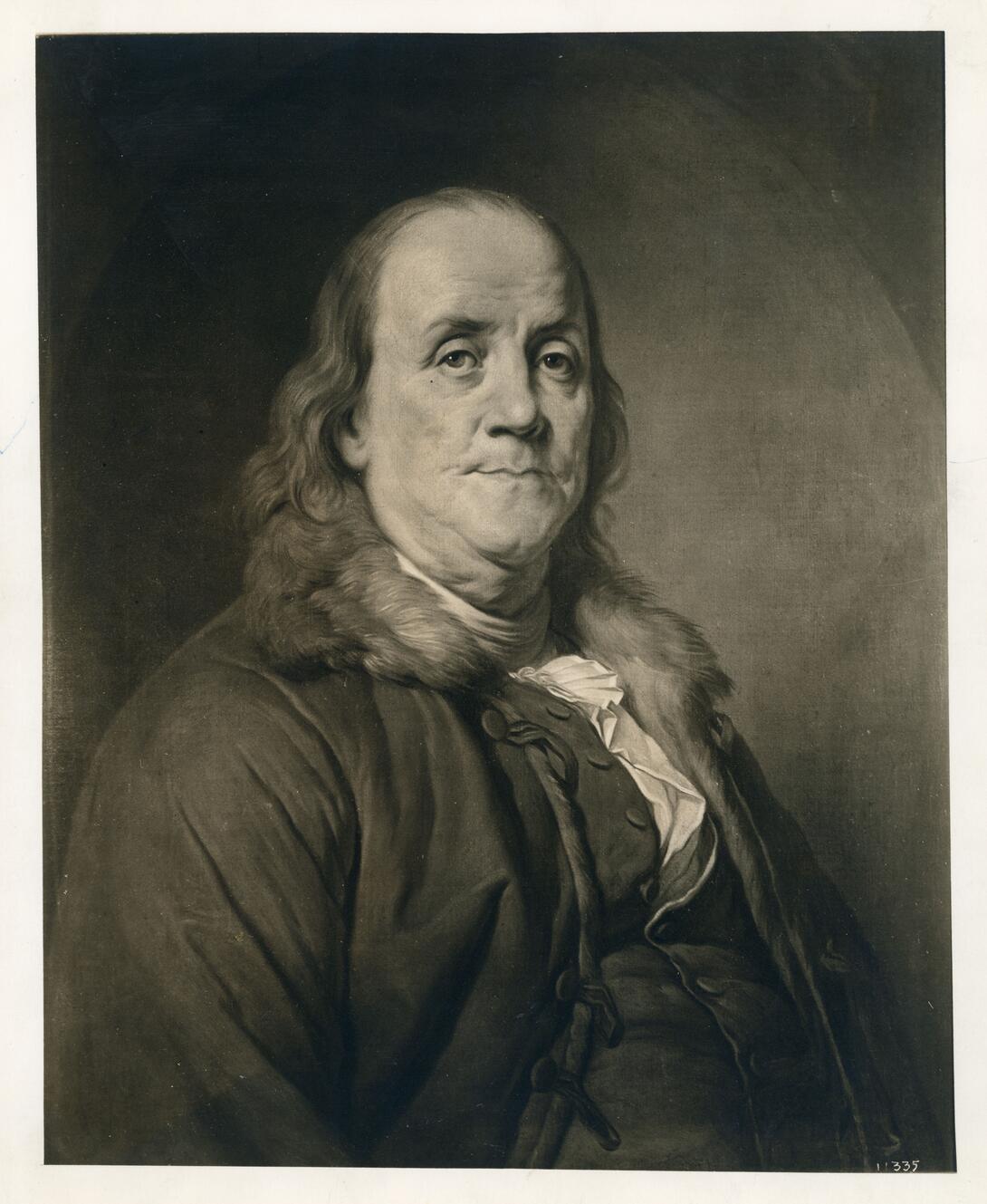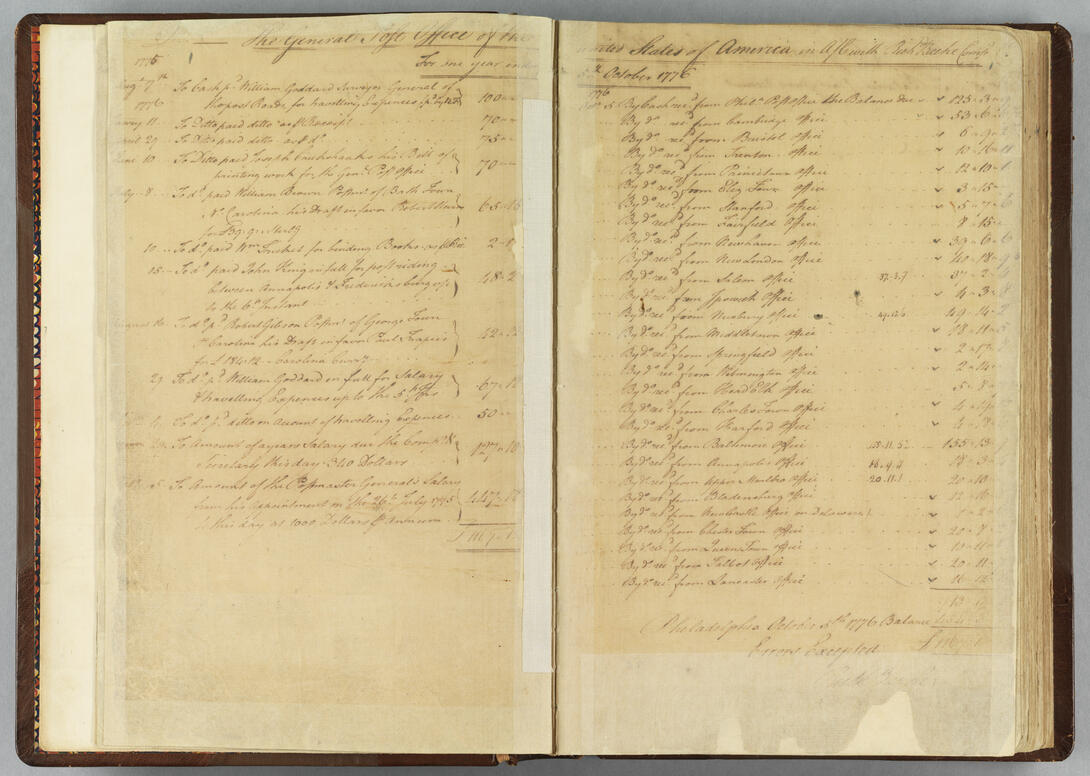Opening the Vault: Washington and Franklin
From May 7 to August 6, 2025, the National Archives Museum will feature historic, handwritten documents of two Founding Fathers: President George Washington and Benjamin Franklin. These items emphasize landmark milestones in American history, honoring the first Commander in Chief of the Continental Army and the first Postmaster General. These historic treasures also commemorate the 250th anniversaries establishing the U.S. Army and U.S. Postal Service.
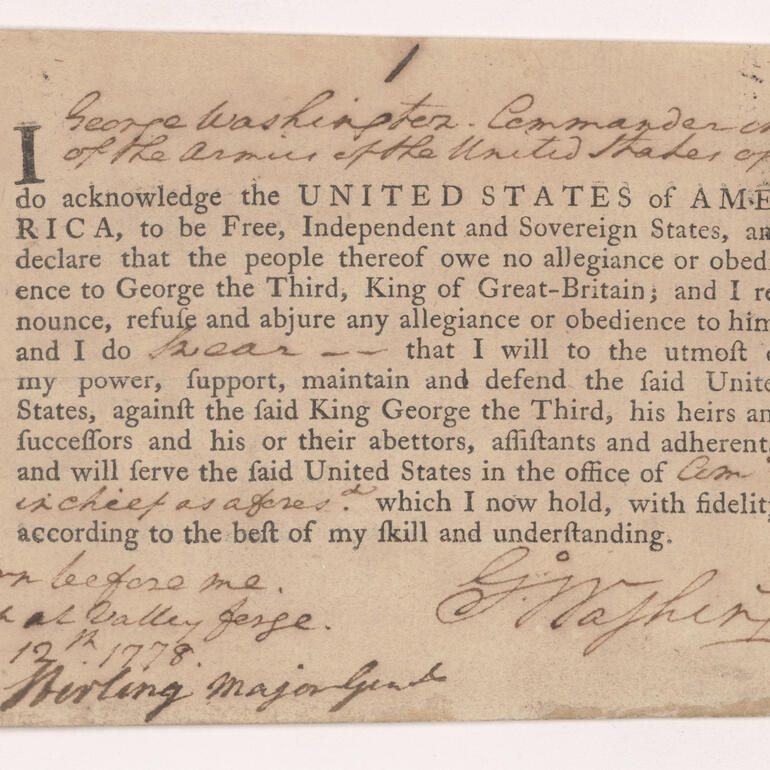
-
On June 14, 1775, the Continental Congress authorized the formation of the Continental Army. The next day they unanimously selected George Washington to be Commander in Chief. Washington had previously served in the French and Indian War as a major in the Virginia militia. He went on to lead the Continental forces to victory in the Revolutionary War.
George Washington. Copy of painting by Gilbert Stuart (NAID: 532939)
-
Encamped at Valley Forge in the winter of 1777–78, Gen. George Washington initiated the signing of a new Oath of Allegiance to the United States by all officers in the Continental Army. Washington's own oath was witnessed by Lord Stirling, one of his most trusted generals.
War Department Collection of Revolutionary War Records
George Washington's signed Oath of Allegiance to the United States (NAID: 12043370)
-
Gen. George Washington refused to accept a salary as Commander in Chief of the Continental Army, but he did receive reimbursement of his expenses. Throughout the eight years of the Revolutionary War, Washington kept a complete list of all headquarters expenses he incurred. This book is written almost entirely in Washington’s hand.
General Records of the Department of Treasury
George Washington’s Revolutionary War Account Book, 1775–83 (NAID: 302018)
-
This is the Oath of Allegiance and Fidelity that was signed by Major General Nathanael Greene while stationed and encamped with the Continental Army at Valley Forge, Pennsylvania. His oath was sworn before, and also signed by, George Washington, General and Commander in Chief of the Continental Army. This affirmation came to be taken due to a Congressional Resolve dated February 3, 1778, that directed "every officer who holds or shall hereafter hold a commission or office from Congress" to take this oath.
This is the Oath of Allegiance and Fidelity that was signed by Major General Nathanael Greene while stationed and encamped with the Continental Army at Valley Fo...Read more
This is the Oath of Allegiance and Fidelity that was signed by Major General Nathanael Greene while stationed and encamped with the Continental Army at Valley Forge, Pennsylvania. His oath was sworn before, and also signed by, George Washington, General and Commander in Chief of the Continental Army. This affirmation came to be taken due to a Congressional Resolve dated February 3, 1778, that directed "every officer who holds or shall hereafter hold a commission or office from Congress" to take this oath.
Read less -
This is the Oath of Allegiance and Fidelity that was signed by Major General Charles Lee while stationed and encamped with the Continental Army at Valley Forge, Pennsylvania. His oath was sworn before, and also signed by, George Washington, General and Commander in Chief of the Continental Army. This affirmation came to be taken due to a Congressional Resolve dated February 3, 1778, that directed "every officer who holds or shall hereafter hold a commission or office from Congress" to take this oath.
This is the Oath of Allegiance and Fidelity that was signed by Major General Charles Lee while stationed and encamped with the Continental Army at Valley Forge, ...Read more
This is the Oath of Allegiance and Fidelity that was signed by Major General Charles Lee while stationed and encamped with the Continental Army at Valley Forge, Pennsylvania. His oath was sworn before, and also signed by, George Washington, General and Commander in Chief of the Continental Army. This affirmation came to be taken due to a Congressional Resolve dated February 3, 1778, that directed "every officer who holds or shall hereafter hold a commission or office from Congress" to take this oath.
Read less -
On July 26, 1775, the Second Continental Congress created the United States Post Office and unanimously selected Benjamin Franklin as the first Postmaster General. Franklin previously served as joint Postmaster General for America, but the Crown dismissed him in 1774 for being seen as too sympathetic to the colonies.
Benjamin Franklin. Copy of painting by Joseph Duplessis, circa 1794-1802. (NAID: 532834)
-
Benjamin Franklin served as the nation’s first Postmaster General from July 26, 1775, to November 7, 1776. This ledger records financial reports that colonial post offices sent to Franklin and his successor, Richard Bache, between 1775 and 1780. Shown here are Post Office reports from Hartford, Connecticut, and Baltimore, Maryland.
Records of the Continental and Confederation Congresses and the Constitutional Convention
-
This 1775 postal rate chart shows the amount of postage required for a single letter to travel from one post office to another. Rates were to be paid in “Penny weights and Grains of Silver, at Three Pence Sterling for each Penny weight.” As Postmaster General, Benjamin Franklin ordered these charts to be “hung up in open View, in the most convenient Place in each respective Post-Office.”
Records of the Continental and Confederation Congresses and the Constitutional Convention
Benjamin Franklin’s Table of Postal Rates, 1775 (NAID: 502820761)






